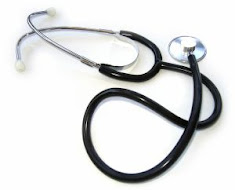 Washington, Mar 17 (ANI): For treatment of severe acid reflux, stomach wrap operations could be a more effective option than acid suppression tablets, according to a new Cochrane Systematic Review.
Washington, Mar 17 (ANI): For treatment of severe acid reflux, stomach wrap operations could be a more effective option than acid suppression tablets, according to a new Cochrane Systematic Review.The study shows a more pronounced improvement in symptoms shortly after surgery than with drug treatment.
Gastro-oesophageal reflux disease (GORD) is a common chronic disease in which acid reflux causes heartburn, acid regurgitation, vomiting and difficulty swallowing.
GORD can be treated by changes to diet and acid suppression tablets, but in the most severe cases, doctors go for a surgical operation called a fundoplication, which involves wrapping part of the stomach around the lower part of the gullet.
However, it is not certain whether this procedure is more effective than medication.
The authors reviewed data from four trials, which together involved 1232 participants.
And their conclusions relate to findings from follow-up up to one year after treatment.
They found that fundoplication operations performed by keyhole surgery were more effective at reducing the symptoms of GORD over this timescale, but that there was little data available to indicate potential benefits over longer timescales.
"There is evidence to suggest that, at least in the short to medium term, surgery is more effective than tablets for treatment of GORD. But surgery does carry a risk and whether this is outweighed by the benefits in the long term is still not certain," said lead researcher Samantha Wileman of the Health Services Research Unit at the University of Aberdeen in the UK.
"Previous research, prior to the development of keyhole surgery for GORD, has suggested that the benefits of surgery for GORD are not sustained over time, highlighting the importance for future keyhole fundoplication studies to include longer term follow-up. We also need to know more about the clinical and cost implications of long term medication versus surgery," said Wileman. (ANI)



